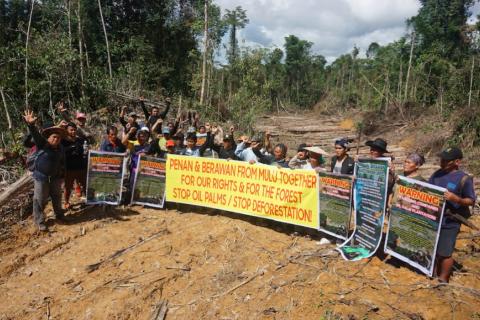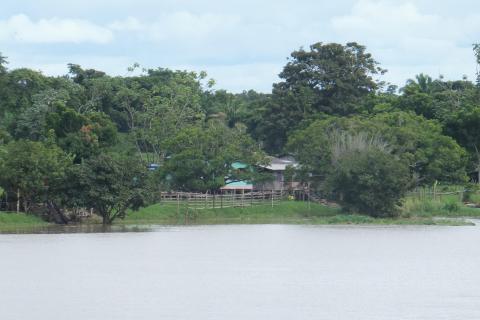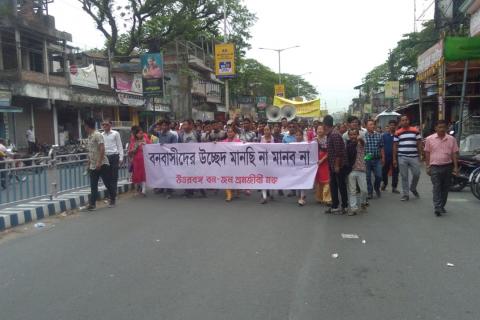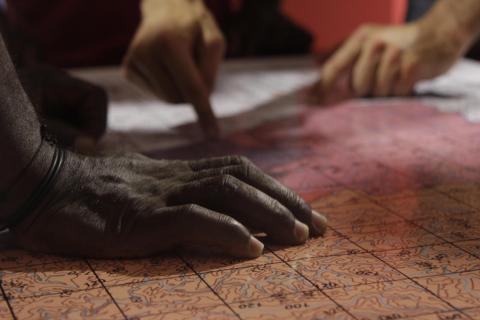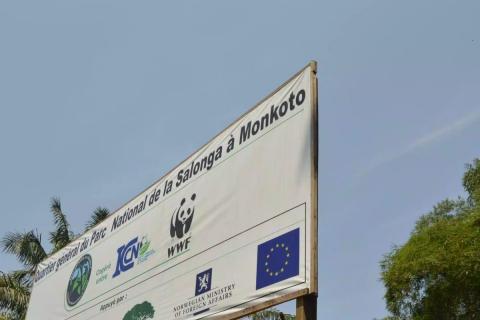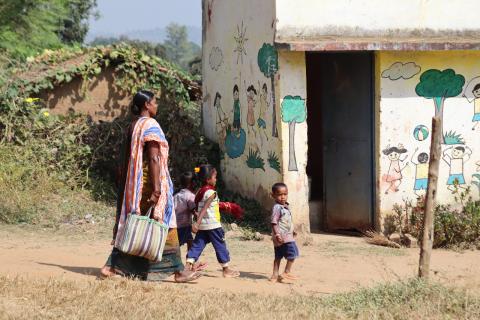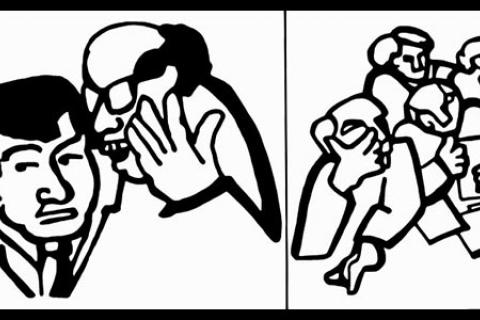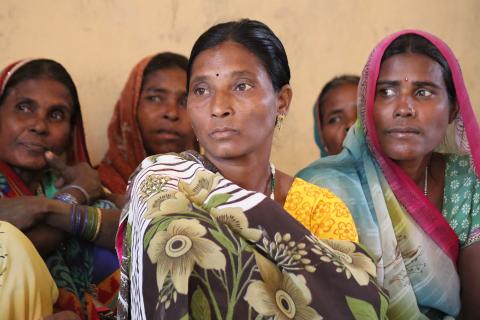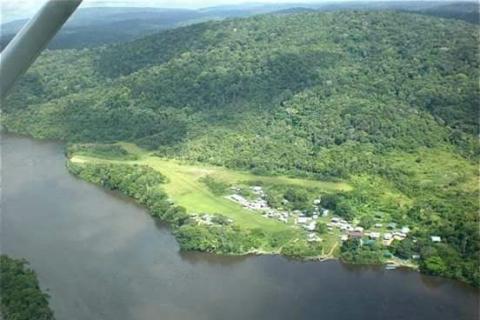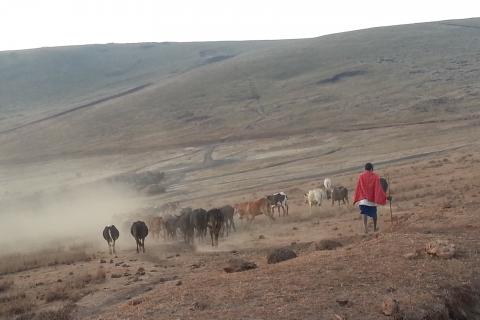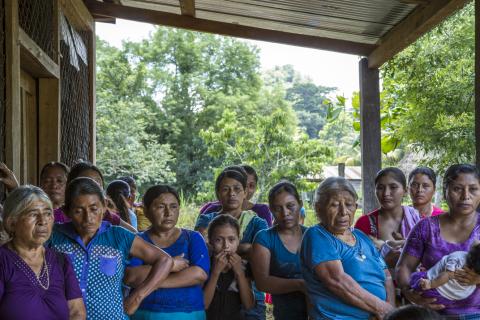Millions of hectares of mostly forested areas in Malaysia have been targeted for developing monoculture plantations –including expanding timber plantations-, however, many of these have not been fully developed yet.
Bulletin articles
Despite the government of Brazil announcing cutbacks to action against deforestation, the Green Climate Fund awarded US$ 96 million for alleged emission reductions in the Brazilian Amazon. These avoided emissions in part exist only on paper.
A long cycle of state repression in India now sees new amendments to the colonial Indian Forest Act which would not only make forest bureaucracy more powerful than ever, but would also de facto put an end to the landmark Forest Rights Act.
The expansion of oil palm and logging in Wimbí is a fact. And in both cases, the protagonist is the same: the land trafficker who allowed the palm company, Energy & Palma, to enter. This new cycle of dispossession threatens the culture and survival of the community.
Serious abuses in DRC’s Salonga National Park at the hands of park rangers supported by funding from the WWF and a range of international donors are just the latest to be documented. This is a wider problem on human rights abuses and colonial interventions in forests.
Before, conservation organizations were focused on raising money to create protected areas in forests supposedly threatened with destruction; today, they constitute a bona fide transnational “industry” that manages and controls areas that go far beyond forests.
Conservationist NGOs are increasingly making partnerships with companies that, in fact, are the main drivers of environmental and social disasters. Even worse, they portray their corporate partners as the willing participants of the “solutions”. But, which solutions are they seeking? And solutions for whom?
Despite the harassment from Forest Department guards, who tried to prevent the Fulwaripara village to submit their claims for recognition of their land under the Forest Rights Act, the village managed to do so. Yet, their claim was not completed. Now, they face again the threat of eviction.
Conservationist NGOs working in Suriname have increased the pressure for Wayana Indigenous Peoples. After years of harsh top-down ways of dealing with forest communities, the Wayana have decided to seek for their own path, one that follows their own way of thinking and living.
For the past eighty years, the Maasai have been displaced and dispossessed of their land, livelihoods, and more in Northern Tanzania, all under the guise of “conservation.” This article traces the origins of this dispossession through to present day struggles, calling for international solidarity.
The creation of the Maya Biosphere Reserve has been legitimizing a destructive model: infrastructure and energy projects, hand-in-hand with Protected Areas “without people.” While conservation NGOs fatten their portfolios, peasant and indigenous communities are displaced, or conditioned to depend on NGOs and the market.
In Africa’s Congo Basin the many promises of rights-based and participatory conservation have miserably failed to materialise. For communities living in and around protected areas, the reality continues to be one of dispossession, impoverishment and widespread human rights abuses.
